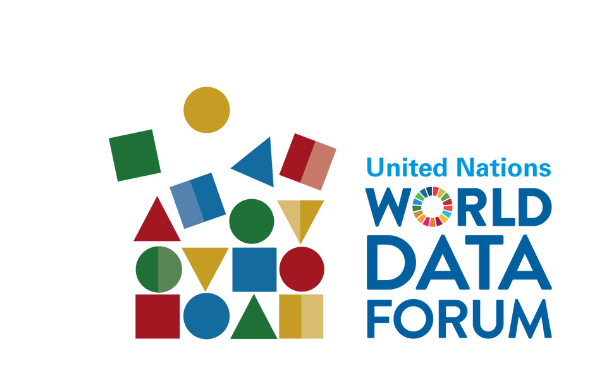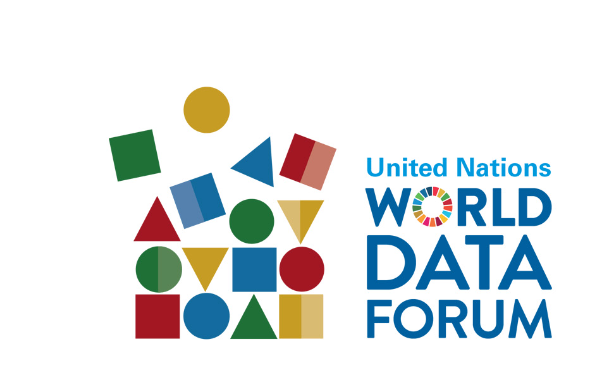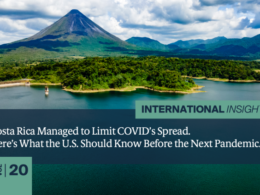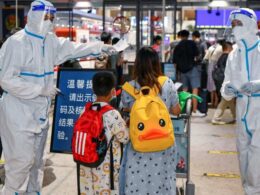health transformation platform
& digital health
Joaquim Cardoso MSc
Founder, Chief Research & Strategy Officer (CRSO),
& Editor in Chief
December 12, 2023
What are the 7 lessons?
- Lesson 1. We need to exchange data and information.
- Lesson 2. Data aren’t enough.
- Lesson 3 Data delayed are data denied
- Lesson 4 Never waste a crisis
- Lesson 5 Avoid simplistic (not simple) solutions.
- Lesson 6 Develop National Statistical Systems and support National Data Infrastructure.
- Lesson 7. Education.

United Nations World Data Forum
Steve MacFeely, Director of Data and Analytics
World Health Organisation
Mark Hereward, Chief Data Officer, Data & Analytics, Division of Data, Analytics, Planning and Monitoring, UNICEF
December 13, 2023
In the first two years of the Covid-19 pandemic, countries reported that 5.4 million people died of Covid-19. Tragic as this was, it is almost certainly an underestimate. At WHO we estimate during those same 2 years when we include indirect effects, or what we call excess mortality associated with Covid-19, the death toll was closer to 14.9 million deaths. In 2022 an additional 1.5 million deaths were reported. But for the exchange of scientific data, it could have been much worse.
So, what lessons did we learn? Or rather, what lessons should we be learning?
Here’s seven.
Lesson 1. We need to exchange data and information. We saw the downsides of not sharing information quickly enough at the beginning of Covid-19 outbreak. But we also saw countries being punished for promptly and responsibly sharing data on new variants. We must not penalize or disincentivize countries from sharing data. If we do, we slow development, and put everyone at risk. On the contrary, countries should have a mutual responsibility to their neighbours to share data on contagious disease. We need to create a safe environment where data can be exchanged. The increasing politicization of data is not helpful to anyone except the ideologues who peddle disinformation
Lesson 2. Data aren’t enough. Early in the pandemic, despite many gaps, there were sufficient data to inform decisions. But many of the decisions made appear to have ignored those data. Many governments made seemingly arbitrary decisions, confusing people and squandering their trust. Poor presentation of data coupled with mixed messages disempowered citizens on the decisions being taken. It’s not clear if this stemmed from an inability to analyze the available data and extract knowledge or whether ideology prevented the objective use of data. Perhaps it was a bit of both?! Whatever the reason, it is clear that data alone are insufficient — they must be made available in a useable format, and they must be used in an open and honest way that others can assess and understand.
Lesson 3 Data delayed are data denied. From a statistical perspective, the UN is not well organized to deal with emergencies. To respect national data sovereignty, the UN must agree every estimate with every member state. During what might be described as normal or routine conditions, this works. But these same processes retard rapid and flexible action in times of crisis. During the pandemic the world took their data from several non-governmental institutions who had quickly published Covid-19 estimates. Meanwhile the WHO, working through intergovernmental processes, were much slower to publish data. Later in the pandemic, WHO estimates of excess mortality associated with Covid-19 — a critical global public good — were significantly delayed over the objections from a very small minority of states. We must find a better balance between national data sovereignty and international responsibility. We must find a better balance between the need for consultation and providing timely information in times of crisis.
Lesson 4 Never waste a crisis. The Great Depression and World War II directly led to the development of GNP and the System of National Accounts. Governments realising they were blind and couldn’t rationally intervene in economies, demanded better data. The New Deal that followed relied on those new statistics. Following Covid-19, it’s not clear there is the same sense of urgency from governments. Where is the deafening roar demanding more and better health data? The silence is quite extraordinary. How is it acceptable, in this day and age, that 40% of all deaths globally still go unregistered every year? How is it possible that so many deaths go unmarked, with implications for economies, human rights, for migration, gender rights, and of course Statistics? 1
Lesson 5 Avoid simplistic (not simple) solutions. There will be more pandemics, there will be other crises, but each one will be different. We need to be careful not to suggest that data can prevent crises. We also need to be careful promoting dashboards as the basis of our crisis defense strategies. They have their place but used unwisely they may inadvertently blinker us rather than prepare us. To prepare for and manage risks we need to develop deep analytical capacity, statistical literacy and cultivate imagination and a mild sense of paranoia. 2
Lesson 6 Develop National Statistical Systems and support National Data Infrastructure. From a health perspective, we need to broaden our focus beyond Health Information Systems and look at health through the less siloed, more holistic, integrated lens of Information Systems for Health. This is more challenging. It requires strong data governance and data privacy legislation. But it is critical to de-silo health data and integrate it with other data — such as education and tax data — as many determinants of health, and health outcomes exist outside the health domain.
Lesson 7. Education. We need to educate people that we cannot stop another pandemic or crisis. Or certainly not every possible health crisis. We need to live with uncertainty. We all need to live with the understanding that scientists (whether or not they wear white coats and have a test-tube in their hand) cannot and will not know everything. In fact, at the start of a health crisis they may not know anything. The science — the scientific understanding — of Covid-19 was changing daily and especially volatile at the start of the pandemic. People wanted answers, mostly from “scientists” or “data experts” who — however — could only talk of probabilities, likelihoods, and scenarios. Action needed to be taken on an understanding of the best-available data. When that understanding changed, however, faith in the system was lost: conversations that include statements like “last week you were saying we don’t need to wear masks, this week you say we do”, signal clearly that one (or both) pronouncements were taken as absolutes when in fact they were the best understanding at the time. That takes a certain depth of understanding and reasoning on behalf of the listener. Likewise, we can’t wish data into existence. Just because we want to be able to predict the spread of disease doesn’t mean we can. Every prediction will be based on partial information, and prone to error. We must live with that discomfort and not turn predictions into absolutes.
And would you like a bonus lesson? Actually learn from lessons 1–7! Lessons learned are what we want, but too often settle for lessons-lived.
2See blog: https://unstats.un.org/unsd/undataforum/blog/dashboards-are-not-the-answer-to-everything/
Originally published at https://unstats.un.org.












